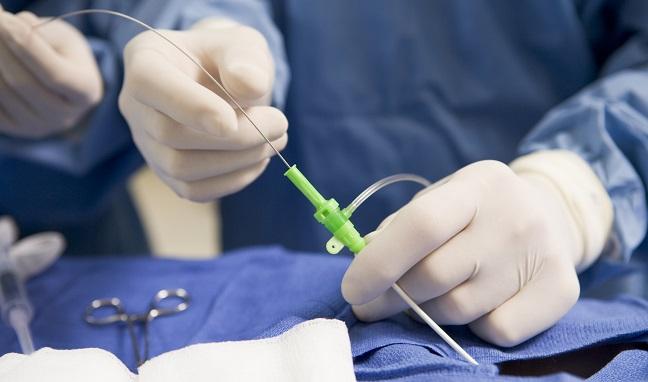How to prepare for a visit to the Cardiologist near me
Wiki Article
Understanding the Value of Cardiology in Modern Medical Care Services
Cardiology plays an important duty in modern healthcare, especially as heart problem proceeds to be the leading reason for mortality worldwide. Advancements in diagnostics and treatment have actually changed person treatment, making it possible for earlier treatments and improved outcomes. Furthermore, the shift towards precautionary cardiology equips individuals to manage their health and wellness proactively. As technology continues to develop, the integration of ingenious options might better redefine cardiology's influence on public wellness, prompting a closer examination of arising trends and their implications.The Occurrence of Cardiovascular Disease and Its Influence On Public Wellness
Although heart condition remains the leading reason of death globally, its effect prolongs much past specific people to affect public wellness systems and economies. The high occurrence of heart problem puts a substantial stress on medical care resources, necessitating boosted financing for prevention, rehab, and treatment programs. Public health and wellness efforts need to resolve danger elements such as weight problems, smoking, and inactive lifestyles, which add considerably to the rising occurrence of heart conditions.Moreover, the financial burden related to heart disease is immense, incorporating not just straight medical costs but additionally indirect expenses associated with shed productivity and premature mortality. Communities deal with obstacles in taking care of these costs, usually resulting in disparities in healthcare gain access to and outcomes. As the population ages and lifestyle-related risks remain to intensify, the urgency for reliable cardiology treatments becomes critical. As a result, addressing heart problem is not only a matter of specific health and wellness yet likewise a crucial public health concern.Advances in Cardiac Diagnostics and Imaging Techniques
Recent developments in heart diagnostics and imaging techniques have changed the area of cardiology, boosting the ability to keep an eye on and find cardiovascular disease. Strategies such as heart MRI, CT angiography, and echocardiography have ended up being increasingly innovative, supplying detailed pictures of cardiac frameworks and functions. These techniques permit the very early identification of problems like coronary artery illness, cardiac arrest, and valvular disorders.Moreover, advancements in non-invasive diagnostics, such as wearable innovation and remote surveillance tools, have encouraged patients and doctor. These devices assist in real-time monitoring of heart rhythms and other vital signs, causing prompt treatments. Additionally, man-made knowledge is being incorporated into imaging analysis, boosting accuracy and efficiency in medical diagnosis.Advancements in Treatment Options for Heart Conditions
Current innovations in cardiology have brought about substantial developments in treatment options for heart disease. These consist of sophisticated surgical techniques that enhance procedural end results and arising drugs that use new opportunities for therapy. As the field advances, these innovations play an essential role in enhancing person care and results.Advanced Surgical Techniques
Developments in surgical techniques have actually changed the landscape of cardiology, supplying new wish for people with heart disease. Minimally intrusive treatments, such as catheter-based treatments, have substantially decreased recovery times and health center keeps. Methods like robotic-assisted surgery improve accuracy, allowing surgeons to browse intricate anatomical structures with higher precision. Furthermore, developments in imaging innovation promote real-time visualization during procedures, enhancing end results. Transcatheter aortic shutoff substitute (TAVR) exhibits an advancement in treating aortic constriction, enabling shutoff substitute without open-heart surgery. Furthermore, hybrid techniques that integrate catheter-based and surgical approaches give tailored solutions for various heart problems. These advanced surgical strategies not only boost client safety however additionally increase treatment options, emphasizing the essential function of innovation in modern cardiology practices.Arising Treatments and drugs
As the landscape of cardiology continues to evolve, arising medicines and treatments play a critical duty in improving therapy alternatives for heart problems. Technologies such as unique anticoagulants and progressed lipid-lowering agents have changed the management of heart diseases, substantially decreasing person morbidity and mortality. Furthermore, the advancement of gene therapies and regenerative medicine supplies encouraging avenues for treating conditions previously deemed incurable. Clinical trials are continuously revealing the effectiveness of these therapies, pushing the borders of standard therapies. The combination of electronic wellness innovations promotes personalized medication, permitting for tailored treatment strategies based on hereditary and lifestyle aspects. Jointly, these improvements emphasize the dynamic nature of cardiology, enhancing individual outcomes and redefining requirements of treatment in modern-day healthcare.The Function of Preventive Cardiology in Person Care
Preventive cardiology plays an important function in individual care by focusing on the identification of threat elements that add to heart disease. With way of living modification strategies and early discovery strategies, healthcare companies can effectively decrease the incidence of cardiovascular events - Cardiology Jupiter. This positive technique not just boosts person end results yet additionally advertises long-lasting health and wellnessDanger Aspect Identification
While heart diseases stay a leading source of morbidity and mortality worldwide, effective risk factor identification works as a cornerstone of preventive cardiology. Identifying risk elements such as high blood pressure, hyperlipidemia, diabetes, and family history is vital for early treatment. Medical care specialists make use of numerous screening approaches to review these aspects, permitting tailored safety nets. Additionally, understanding a person's way of life choices, such as smoking cigarettes and physical inactivity, better notifies threat evaluations. This thorough analysis enables medical professionals to develop tailored care strategies targeted at mitigating dangers. By focusing on risk element recognition, healthcare systems can improve person results and lower the overall problem of cardio diseases, eventually adding to improved public health and wellness approaches and resource appropriation.Lifestyle Adjustment Approaches
A multitude of research studies highlights the essential role of way of life alteration try this web-site strategies in decreasing cardiovascular condition risk. These techniques include nutritional changes, enhanced physical task, smoking cessation, and weight administration. By embracing a heart-healthy diet rich in fruits, veggies, entire grains, and lean proteins, individuals can reduce cholesterol degrees and high blood pressure. Regular physical activity reinforces the heart and improves overall cardiovascular health and wellness. In addition, quitting smoking substantially reduces the danger of heart problem and boosts recovery rates for those with status quo. Weight management additionally adds to cardio health by reducing other threat elements such as diabetes mellitus and hypertension. Carrying out these way of life transforms not only promotes specific wellness but additionally acts as a keystone of preventive cardiology in individual treatment.Early Detection Methods
Way of living adjustments greatly contribute to minimizing heart disease threats, yet they are most reliable when matched with very early detection methods. Preventative cardiology stresses the relevance of determining potential heart concerns prior to they intensify into serious problems. Methods such as blood stress tracking, cholesterol screening, and progressed imaging innovations like echocardiograms play important roles in reviewing cardiovascular health. Biomarkers and hereditary testing additionally enhance the accuracy of early discovery, enabling tailored preventative methods. Routine cardiac threat analyses equip medical care providers to interfere proactively, potentially protecting against cardiovascular disease and strokes (Cardiology care). By incorporating these early discovery methods right into routine care, patients can profit from timely way of life treatments and targeted treatments, ultimately enhancing and enhancing end results quality of lifeIntegrating Modern Technology Into Cardiology Practices
As innovations in technology remain to improve various fields, the assimilation of innovative devices and systems into cardiology methods has actually become necessary for enhancing person care and end results. Telemedicine platforms allow cardiologists to monitor clients remotely, enhancing access to care while minimizing the worry on healthcare facilities. Wearable devices, such as smartwatches, allow continual heart price monitoring, notifying both clients and doctors to prospective problems in real-time. Furthermore, expert system (AI) is being used to examine huge quantities of these details heart data, helping in early diagnosis and customized therapy strategies. Advanced imaging methods, including 3D echocardiography, improve visualization of heart structures, causing a lot more specific interventions. Electronic health and wellness documents (EHRs) enhance individual info management, ensuring that cardiologists have immediate accessibility to crucial data. Together, these technical improvements are changing cardiology, advertising aggressive management and boosted health and wellness end results for patients with cardio problems.The Relevance of Client Education and Involvement
Individual education and interaction play a pivotal function in the management of cardiovascular wellness. By gearing up people with knowledge concerning their conditions, treatment alternatives, and lifestyle modifications, healthcare suppliers empower individuals to take an energetic role in their treatment. This proactive technique can lead to enhanced adherence to suggested drugs, dietary changes, and exercise regimens, eventually lowering the risk of complications.Engagement likewise promotes a solid patient-provider partnership, encouraging open communication and depend on. When people really feel informed and involved, they are more probable to voice concerns and ask questions, which can result in much better professional end results. Additionally, educational resources, such as workshops or digital platforms, can improve understanding and promote self-management methods. On the whole, focusing on patient education and engagement is necessary for boosting cardio wellness, boosting lifestyle, and lowering medical care prices linked with heart diseases.Future Trends in Cardiology and Their Prospective Impact

Often Asked Questions
What Way Of Life Adjustments Can Reduce Cardiovascular Disease Danger?
The present inquiry addresses way of living changes that can substantially lower heart problem threat. Cardiology Jupiter. Adopting a well balanced diet plan, taking part in normal physical task, maintaining a healthy and balanced weight, handling tension, and avoiding cigarette can notably boost cardiovascular healthJust How Can I Recognize Very Early Indications of Heart Troubles?
Acknowledging early indications of heart problems entails tracking signs and symptoms such as breast pain, shortness of breath, fatigue, and uneven heart beat. Timely recognition of these signs can motivate needed medical analysis and intervention for far better outcomes.What Are the Differences In Between Cardiologists and Cardiac Surgeons?
The distinctions between cardiologists and cardiac surgeons depend on their duties; cardiologists mainly detect and handle heart problems with non-invasive methods, while heart surgeons do surgeries to correct structural heart concerns. Each plays an important, distinctive function.
How Often Should I Obtain My Heart Wellness Checked?
The regularity of heart medical examination differs based upon private danger aspects. Normally, adults should undertake examinations every one to 2 years, while those with present conditions might call for more constant evaluations as recommended by medical care specialists.What Role Does Genes Play in Cardiovascular Disease Risk?
Genes considerably influences cardiovascular disease risk, with domestic patterns suggesting acquired conditions. Specific genetics can predispose people to hypertension, cholesterol problems, and other cardio problems, highlighting the relevance of genetic testing in assessing heart wellness. Heart illness remains the leading cause of fatality worldwide, its influence prolongs much beyond private people to affect public wellness systems and economies. Public wellness initiatives need to deal with threat factors such as excessive weight, smoking, and inactive way of livings, which contribute substantially to the rising incidence of heart conditions.Moreover, the financial burden connected with heart condition is immense, including not just direct medical prices but also indirect expenditures connected to lost efficiency and premature death. Preventative cardiology plays an important function in person care by focusing on the identification of threat variables that contribute to heart disease. Man-made knowledge (AI) and equipment learning are enhancing diagnostics and person surveillance, enabling early detection of heart illness. pop over to these guys The differences between cardiologists and heart surgeons exist in their roles; cardiologists mainly manage and diagnose heart conditions through non-invasive techniques, while cardiac cosmetic surgeons execute medical procedures to deal with architectural heart issues.Report this wiki page